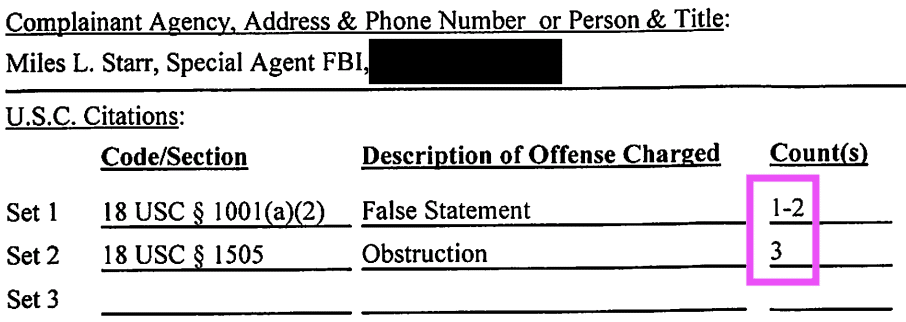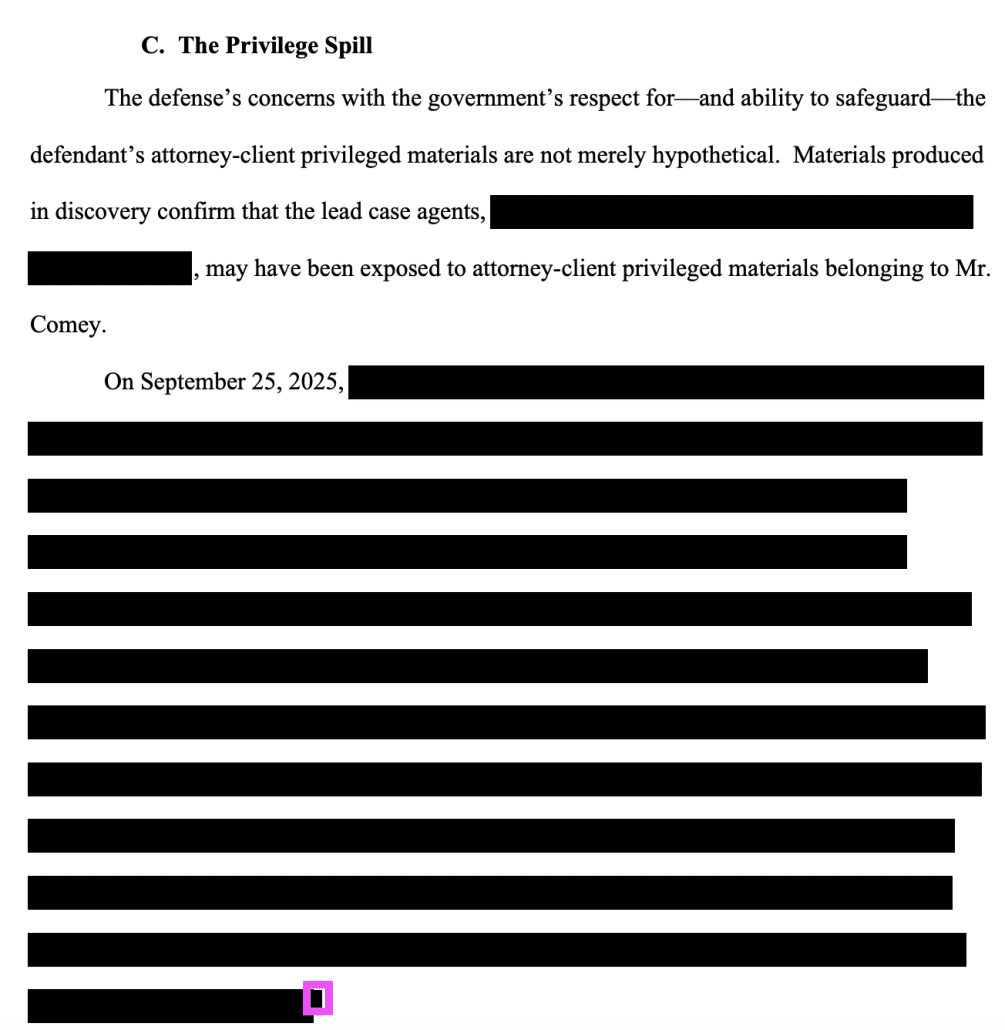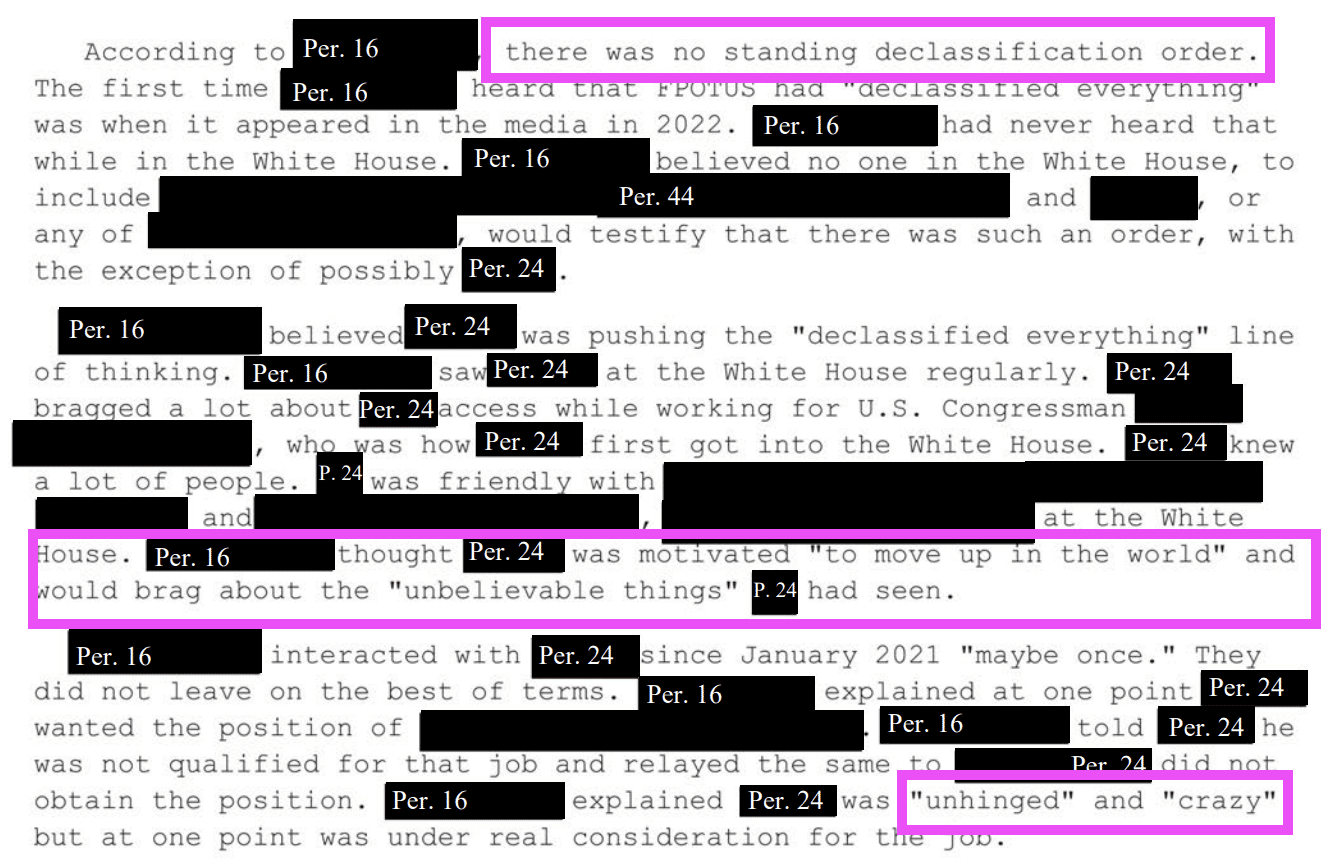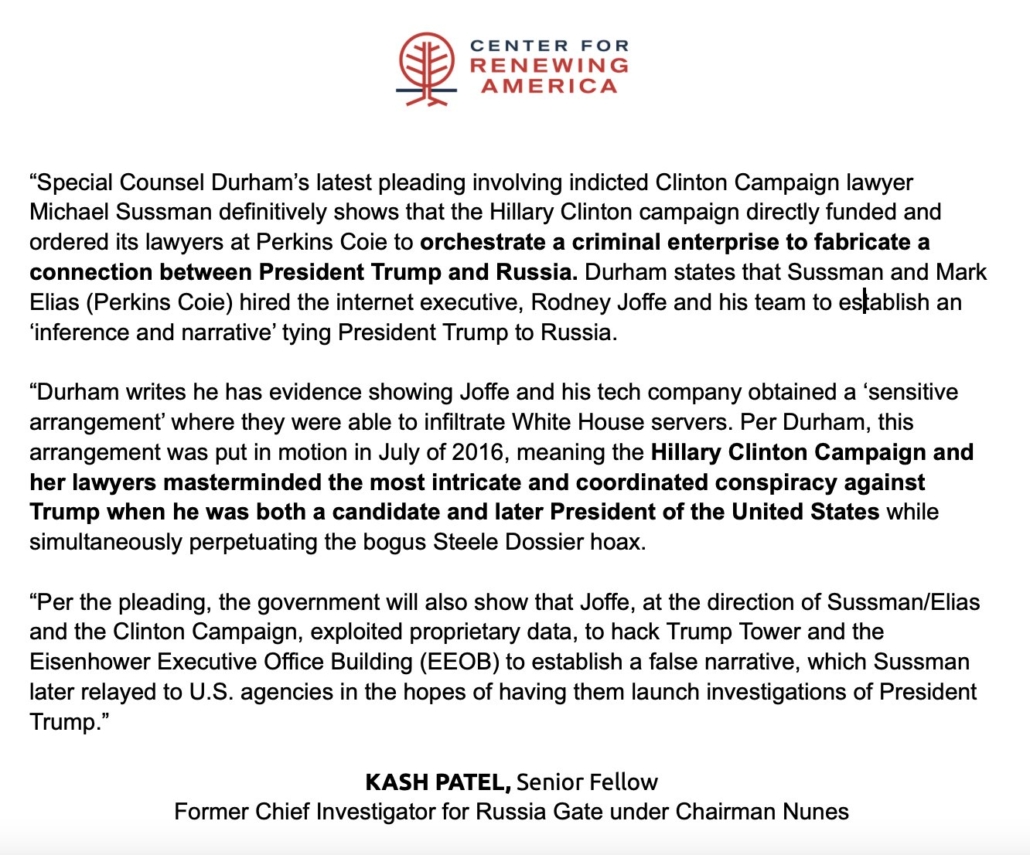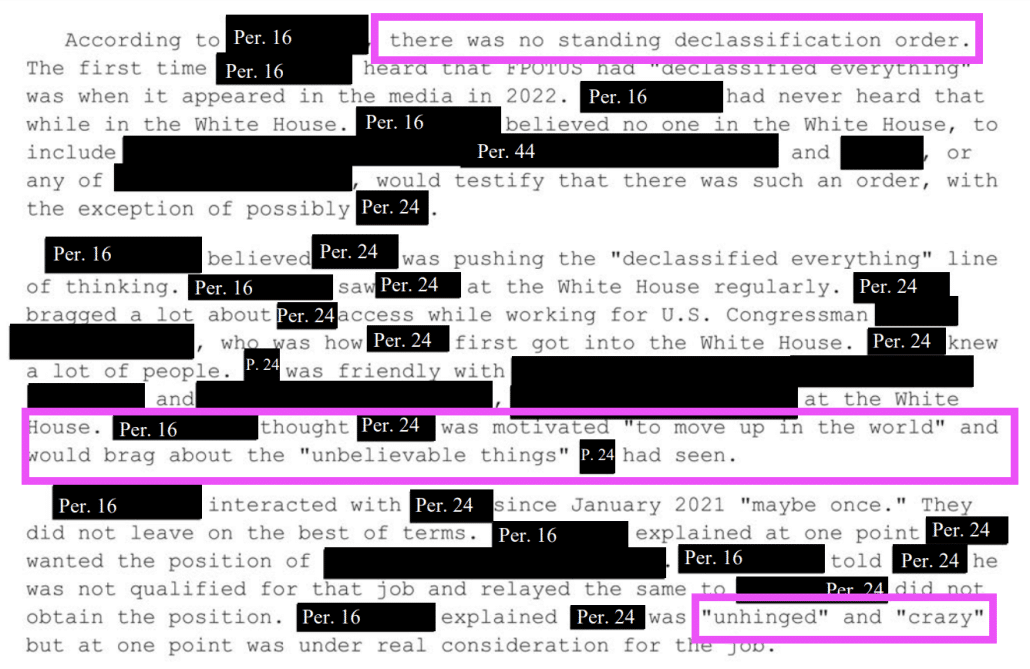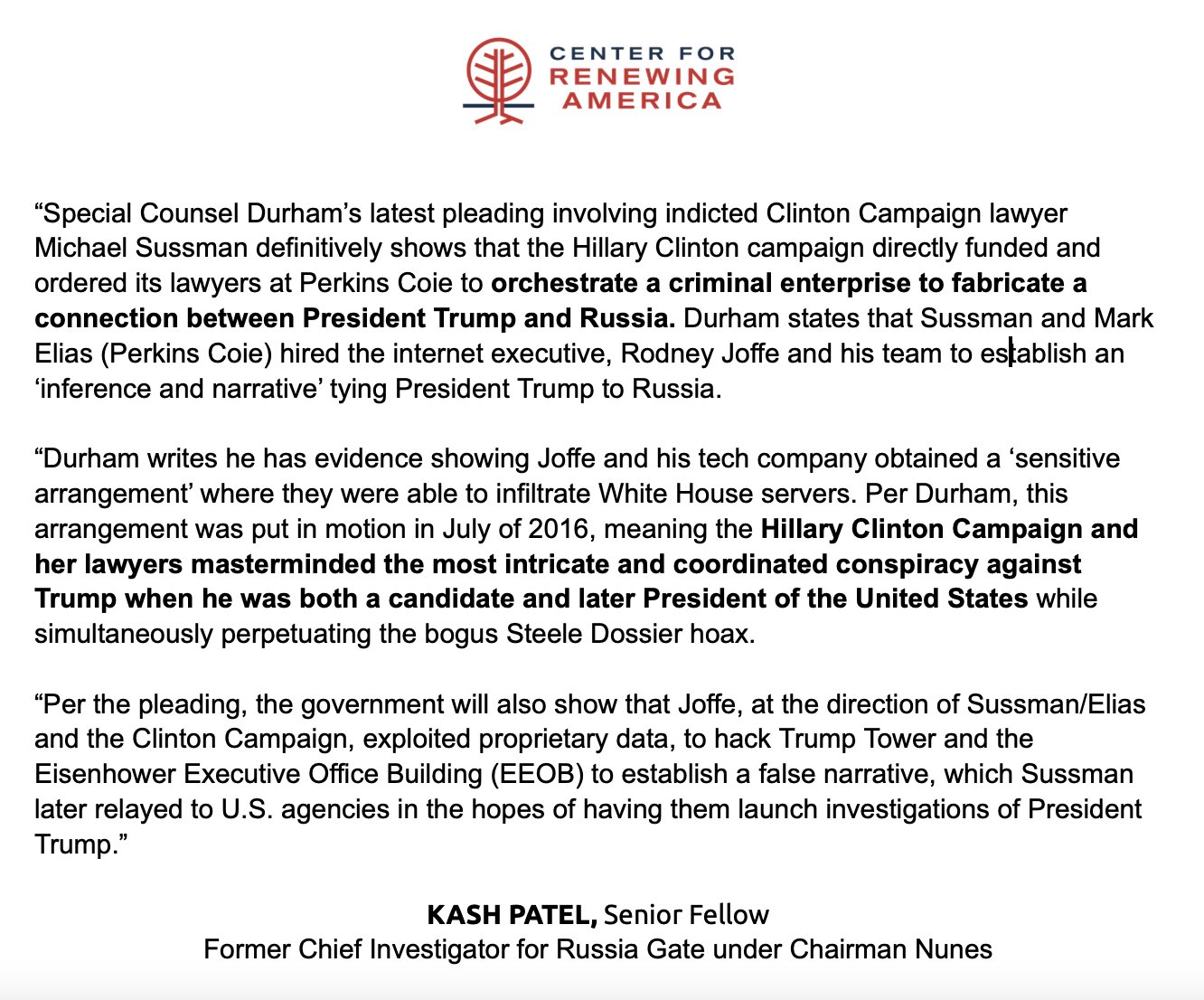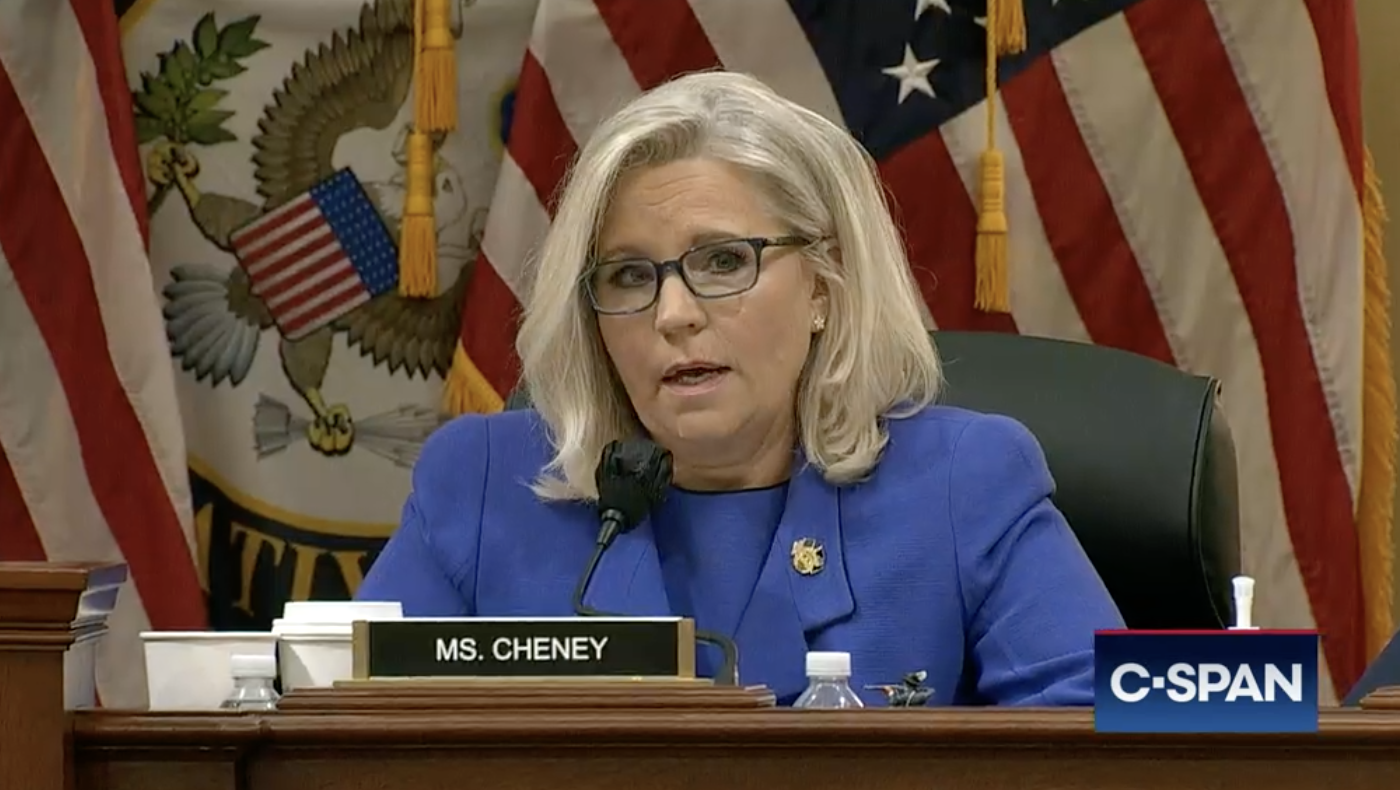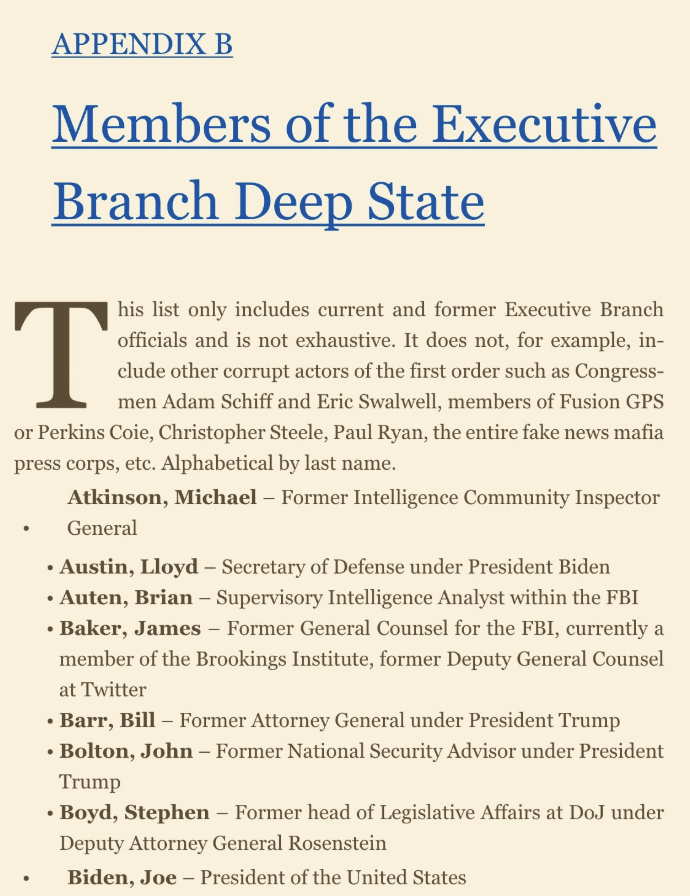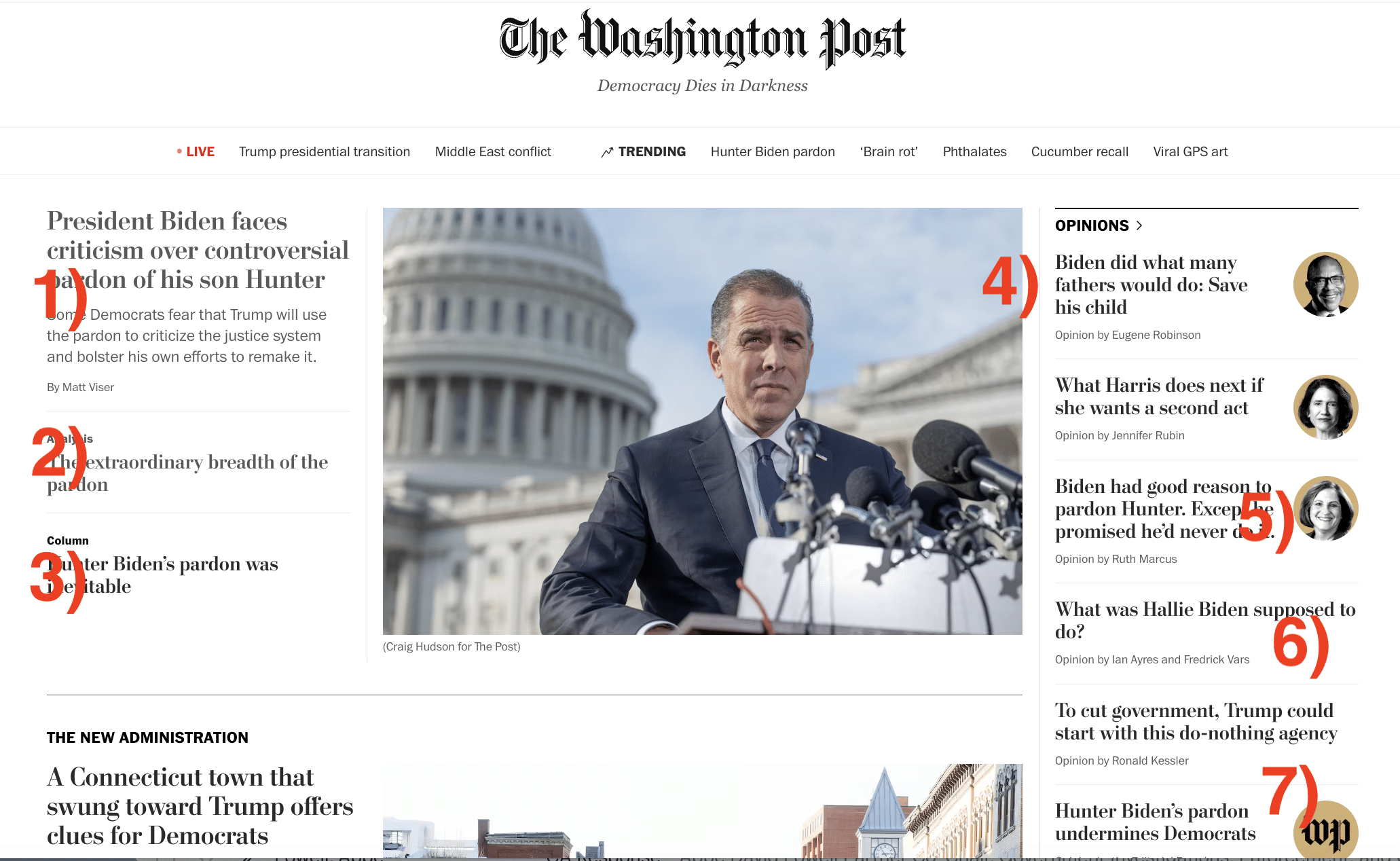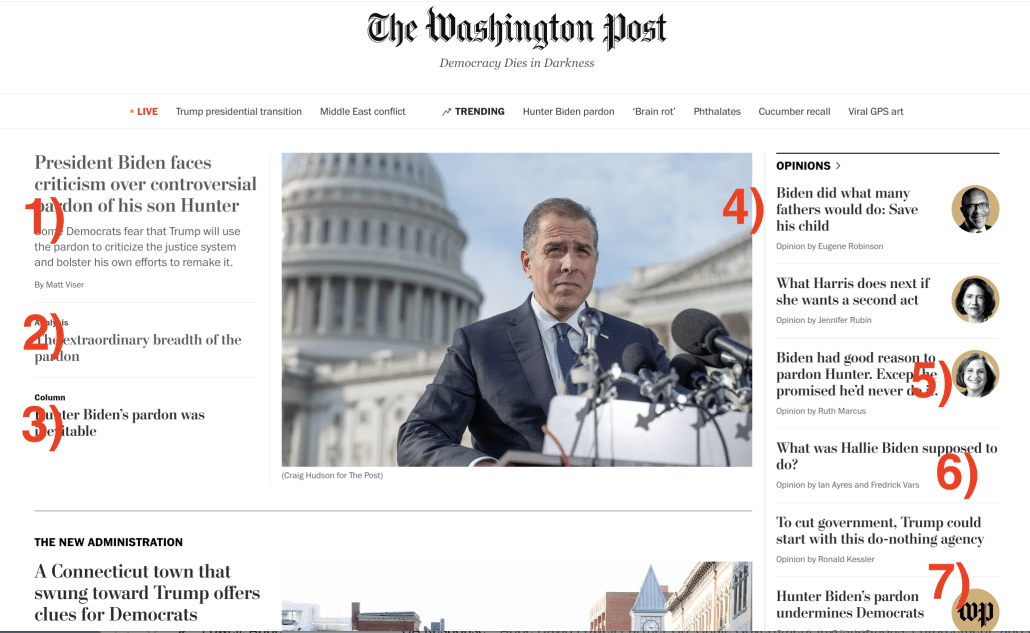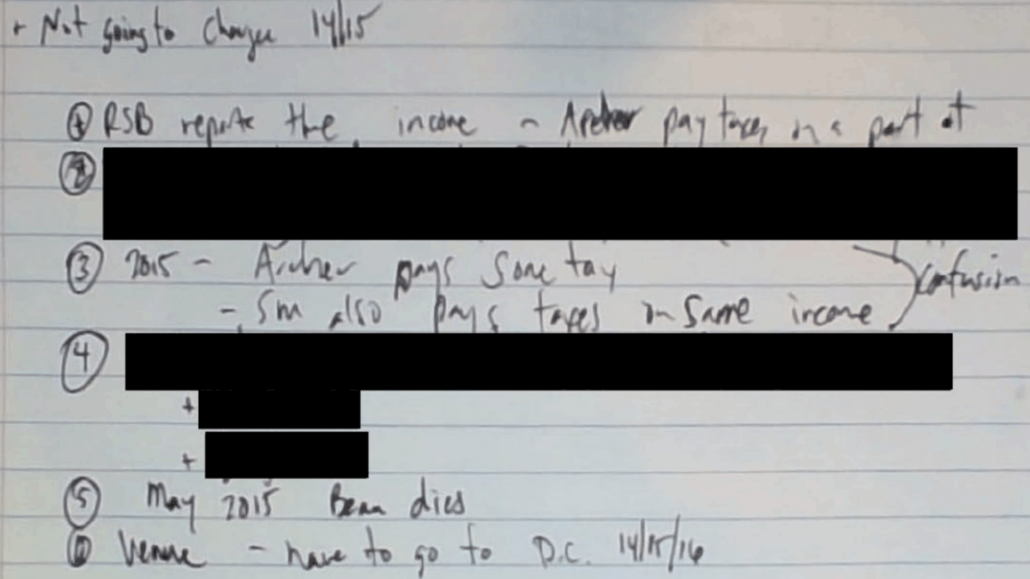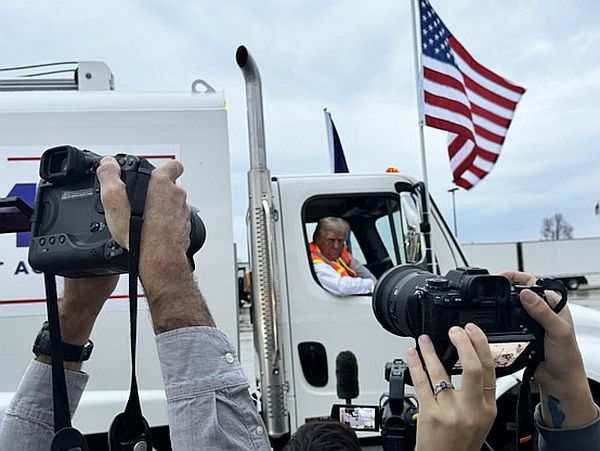Donald Trump’s [Miles] Starr Chamber
When the government first asked, on October 13, to use a filter review to access content seized from Dan Richman five years ago, it described that Jim Comey, “prefers to challenge the underlying search warrant first before any review takes place.”
But in his response yesterday, Comey didn’t do that.
Rather, after a heavily-redacted discussion of the problems with DOJ’s past and prospective access to the content, he proposed that Judge Michael Nachmanoff should deny the government’s filter request without prejudice, allowing DOJ to reconsider its bid for a filter protocol after they’ve first answered a set of questions.
For the foregoing reasons, the Court should deny the government’s motion to implement its proposed filter protocol without prejudice, and direct the government to disclose the following information to allow both the Court and the defense to assess the appropriateness of the protocol:
1. The legal authority for the contemplated review.
2. Whether any quarantined materials have been accessed by, shared with, or provided to the case team (and, if so, which materials were reviewed by which personnel on which day), and whether any such materials have been produced in discovery.
3. The protocol used during the prior filter review, including search parameters, segregation measures, privilege determinations, and associated logs or correspondence.
4. Whether the government intends to search raw returns or only the set already filtered in the prior review. See In re Search Warrant Issued June 13, 2019, 942 F.3d 159, 181 (4th Cir. 2019), as amended (Oct. 31, 2019) (holding that “the magistrate judge erred” by approving a filter protocol “without first ascertaining” the materials to be reviewed).
5. Whether non-lawyers will conduct any portion of the Filter Review. See ECF No. 38-1 ¶ 2 n.2 (“The Filter Team is comprised of Two Assistant United States Attorneys, and their support staff”) (emphasis added); see In re Search Warrant Issued June 13, 2019, 942 F.3d at 177 (criticizing the use of non-lawyers to designate documents as nonprivileged).
One might explain the reason why he’s doing this in one or two ways.
The first is a procedural reason. The warrants and original filter protocol themselves were probably reasonably sound for the purpose to which they were put: investigating whether Richman leaked classified information. The heavily redacted bit describes four different warrants and the loaner AUSAs’ original filing described content seized from “an image of a computer hard drive, an iCloud download, the backup of an iPhone, and the backup of an iPad.” There are five sealed exhibits to the filing (none cited in unredacted form), of which four are presumably the warrants and one may pertain to the original protocol, though there is something identified in footnote 4 that “was not produced,” not even after Comey’s team asked about it on October 23. While the seized material included a great deal of material, including material pertaining to Richman’s clients other than Comey and “sensitive and private materials belonging to his students,” the original filter protocol withheld, “private materials related to his students, as well as privileged materials, [from] the case team.”
But, contrary to the approach used with (for example) Michael Cohen as well as what we’ve been able to publicly review of warrants implicating Rudy Giuliani, in which prosecutors obtained new warrants every time the scope or target of an investigation changed, the government appears not to have obtained new warrants to search this material for a different crime, the alleged lie Comey told in 2020.
[I]t appears that the government has not obtained any search warrants in connection with the instant matter, including any warrant authorizing a search of the Arctic Haze materials for evidence of the two offenses with which Mr. Comey is charged.
Comey cites several precedents, one in the Fourth Circuit, that would require a new warrant.
He points to other reasons, too, why the government would need to obtain new warrants: because these warrants are not only stale, but they predate the alleged crime here, testimony from October 2020.
The government now proposes to use those warrants to search for evidence of different crimes that arose from a proceeding that occurred after USAO-DDC obtained the Arctic Haze warrants.
Comey also objects because some part of this was sealed by another court, which by date and location would probably have been an order from Beryl Howell when she was Chief Judge in DC.
The government has no lawful basis to review materials obtained more than five years ago, in a closed investigation that ended without any charges, pursuant to stale warrants for separate offenses, including materials that remain under seal by another court. [my emphasis]
Comey maintains that he can challenge the use of these warrants here.
The Fourth Amendment plainly prohibits the government from doing exactly what it seeks to do here: the Arctic Haze warrants were obtained more than five years ago in a separate and now-closed criminal investigation and authorized the seizure of evidence of separate offenses. Yet the government seeks to turn those warrants into general warrants to continue to rummage through materials belonging to Mr. Comey’s lawyer in an effort to seize evidence of separate alleged crimes. The Court should not authorize the government to conduct an unlawful review.
[snip]
Mr. Comey reserves his right to move to suppress these warrants, to the extent the government continues to use them in this manner. See, e.g., United States v. Place, 462 U.S. 696, 709–10 (1983) (a seizure lawful at its inception can nevertheless violate the Fourth Amendment based on agents’ subsequent conduct); DeMassa v. Nunez, 770 F.2d 1505, 1508 (9th Cir. 1985) (“an attorney’s clients have a legitimate expectation of privacy in their client files”). Until the government answers the questions the defense has previously raised about these warrants, which to date have remained unanswered and which are detailed at the end of this submission, the defense will not be in a position to file an appropriately targeted suppression motion.
But even the language here notes at one problem: Normally you challenge a Fourth Amendment violation by suppressing evidence for use at trial. Here, Comey is trying to do more. He’s trying to prevent investigators from even accessing it. And so, instead, he’s asking the judge to force prosecutors to answer some basic questions in the guise of allowing him to suppress the warrants.
Until the government answers the questions the defense has previously raised about these warrants, which to date have remained unanswered and which are detailed at the end of this submission, the defense will not be in a position to file an appropriately targeted suppression motion.
Which brings us to the second possible reason for responding this way: question 2. Who already accessed privileged material, when did they do so, and has the government turned over that material in discovery? The answer to that question, especially, would force investigators to confess if they’ve already snuck a peek into what is in the privileged communication.
The “spill” that Comey suspects happened may have happened recently: on the day Lindsey Halligan obtained the indictment.
That footnote, marked in pink, cites the Criminal Case Cover Sheet, which, in spite of being labeled as “REDACTED,” is not, and so among other things, reveals the name of one of two FBI agents on the case, Miles Starr (the other being Jack Eckenrode, who investigated Scooter Libby but then left the team, and who joined John Durham in chasing Russian disinformation for four years).
I’ve redacted Starr’s phone number. You’re welcome, Miles.
But the Sheet also includes an error: it lists three counts, including the one, pertaining to Comey’s answer to Lindsey Graham’s question about a CIA referral (one that FBI may never have received) that Kash Patel and John Ratcliffe ret-conned into a “Clinton Plan” on which to hang the Durham investigation. That’s the one the grand jury no-billed.
While none of that explains when and how Starr and Eckenrode snuck a peek of privileged information, it might explain why.
Kash and Eckenrode are still chasing the theory behind the dropped charge, that Jim Comey purportedly knew Hillary Clinton had a plan (one fabricated by Russia and then embellished by Eckenrode and Durham to claim Hillary wanted to frame Trump) to emphasize Donald Trump’s ties with Russia. That’s the logic of the larger conspiracy theory that Eckenrode has been hired to chase. It was and remains Russian disinformation, but that didn’t stop Eckenrode the last time he tried this.
Indeed, because DC USAO obtained warrants in 2019 and 2020, there may be communications between Comey and his attorneys about the John Durham investigation, about Eckenrode’s past witch hunt, which would explain why Comey is so interested in the scope of proposed review, which the loaner AUSAs still haven’t told Comey.
Because Kash and Eckenrode are chasing that conspiracy theory, this is a much bigger issue than just the case before Nachmanoff. As I laid out in my post predicting that John Durham’s investigation was a preview of coming attractions (even before I knew that Kash had brought Eckenrode back!), Durham already played games to access attorney-client privileged material.
In response, Sussmann accused Durham of abusing the same grand jury process he abused with Benardo (abuse, ironically, that debunked Durham’s conspiracy theory).
First, the Special Counsel’s Motion is untimely. Despite knowing for months, and in some cases for at least a year, that the non-parties were withholding material as privileged, he chose to file this Motion barely a month before trial—long after the grand jury returned an Indictment and after Court-ordered discovery deadlines had come and gone.
Second, the Special Counsel’s Motion should have been brought before the Chief Judge of the District Court during the pendency of the grand jury investigation, as the rules of this District and precedent make clear.
Third, the Special Counsel has seemingly abused the grand jury in order to obtain the documents redacted for privilege that he now challenges. He has admitted to using grand jury subpoenas to obtain these documents for use at Mr. Sussmann’s trial, even though Mr. Sussmann had been indicted at the time he issued the grand jury subpoenas and even though the law flatly forbids prosecutors from using grand jury subpoenas to obtain trial discovery. The proper remedy for such abuse of the grand jury is suppression of the documents.
Fourth, the Special Counsel seeks documents that are irrelevant on their face. Such documents do not bear on the narrow charge in this case, and vitiating privilege for the purpose of admitting these irrelevant documents would materially impair Mr. Sussmann’s ability to prepare for his trial.
He also revealed that some of those privilege claims went back to August — that is, the weeks after Durham should have closed up shop.
Email from Andrew DeFilippis, Dep’t of Just., to Patrick Stokes, Gibson, Dunn & Crutcher LLP, et al. (Aug. 9, 2021) (requesting a call to discuss privilege issues with a hope “to avoid filing motions with the Court”); Email from Andrew DeFilippis, Dep’t of Just., to Patrick Stokes, Gibson, Dunn & Crutcher LLP, et al. (Aug. 14, 2021) (stating that the Special Counsel “wanted to give all parties involved the opportunity to weigh in before we . . . pursue particular legal process, or seek relief from the Court”). And since January— before the deadline to produce unclassified discovery had passed—the Special Counsel suggested that such a filing was imminent, telling the DNC, for example, that he was “contemplating a public court filing in the near term.” Email from Andrew DeFilippis, Dep’t of Just., to Shawn Crowley, Kaplan Hecker & Fink LLP (Jan. 17, 2022). [my emphasis]
In a hearing on May 4, right before trial, Joffe’s lawyer revealed they had demanded Durham press a legal claim much earlier, in May 2021.
MR. TYRRELL: So if they wanted to challenge our assertion of privilege as to this limited universe of documents — again, which is separate from the other larger piece with regard to HFA — they should have done so months ago. I don’t know why they waited until now, Your Honor, but I want to be clear. I want to say without hesitation that it’s not because there was ever any discussion with us about resolving this issue without court intervention.
THE COURT: That was my question. Were you adamant a year ago?
MR. TYRRELL: Pardon me?
THE COURT: Were you adamant a year ago that —
MR. TYRRELL: Yes. We’ve been throughout. We were not willing to entertain resolution of this without court intervention.
THE COURT: Very well.
Ultimately, Cooper did bow to Durham’s demand, but prohibited them from using those documents at trial.
That didn’t prevent DeFilippis from attempting to use the privileged documents to perjury trap his one Fusion witness, the kind of perjury trap that might have provided a way to continue the madness indefinitely.
There must have been nothing interesting there: most of the Fusion documents were utterly irrelevant to the Sussmann charges, but could implicate the Danchenko ones, but Durham didn’t use them there, nor did he explain their content in his final report.
That effort involved, among other things, abusing the prosecutorial process to bypass rulings (such as the sealing order mentioned above) that Beryl Howell had already made, and using one criminal case, against Michael Sussmann, to obtain attorney-client privileged materials that would only be relevant in another criminal case, the Igor Danchenko case (or a larger conspiracy).
Particularly given the reticence of the loaner AUSAs to tell Comey what happened, whether they have warrants, who read what, this feels like an attempt to retroactively bless access that investigators already got. And the stakes are bigger than this one case. As Durham (and Eckenrode) did in 2022, this likely would primarily serve to feed their bigger conspiracy theory.
Plus, if Eckenrode is sneaking peeks at Comey’s privileged communications still in FBI custody, there’s nothing that would prevent him from doing the same with all the other people whose privileged communications have been seized during this years-long witch hunt.
And that’s why you ask these questions.

